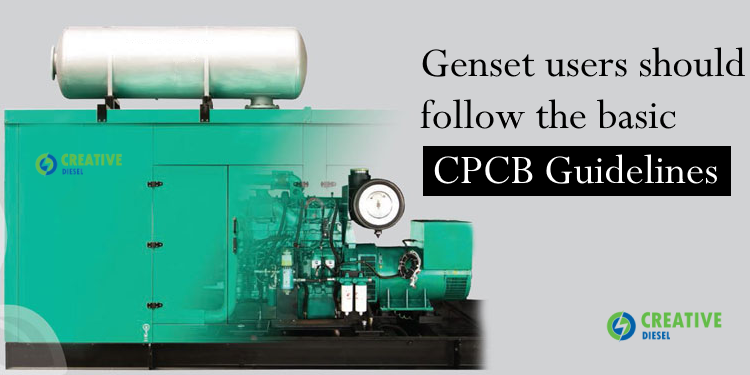
Genset users should follow the basic CPCB Guidelines
Generators contribute to air pollution as well as noise pollution. Diesel is the most common fuel used in domestic and industrial generator sets.
Central Pollution Control Board has outlined guidelines for genset users that must be followed in letter and spirit to ensure a healthy and viable environment in the country.
Installation of generators
1. An isolated foundation or standalone installation with anti-vibration packing should be required for gensets.
2. Smoke should be channeled so as not to cause nuisance in the neighborhood.
3. A gensets installation should be prioritized in the basement, which should be followed by the rooftop, ground floor, and front or back of the building. In any case, there should be no public inconvenience.
Maintenance of generators
The owner of the generator is responsible for maintaining the generator and preventing unpermissible levels of noise or air pollution. Every Genset owner has to follow these do’s and don’ts to ensure its proper maintenance.
The do’s for maintaining generator sets as prescribed by CPCB
- If the vacuum indicator is in the red band, use compressed air with pressure up to 60 psi to clean the outer element.
- Make sure to drain out water and sediments from the fuel tank and water separator before starting the genset.
- Maintain a weekly cleaning schedule for the pre-cleaner to avoid dust accumulation.
- Check the lubricant pressure every morning after starting the generator.
- Check for any leaks of engine oil, fuel, or coolant before starting the engine.
- Cleaning the exteriors of the engine daily is necessary.
- Be sure to perform regular maintenance checks and to use only genuine spare parts when replacing them in case of failure.
- Every day, run the engine idle for a couple of minutes to prevent leaks or abnormal noises. Before shutting off the generator, let the engine idle for three minutes.
The dont’s to be avoided in the maintenance of gensets
Never operate the engine without the following accessories in place:
- Diesel tank cap and strainer
- Thermostat
- The support of exhaust and intake piping
- Radiator pressure cap
Never run the engine with:
- The vacuum indicator removed
- Low oil pressure
- A dirty radiator core
- Ruptured or a choked air cleaner element
Why it is essential to have emission limits for a diesel generator?
In a typical diesel generator, chemical energy in diesel fuel is converted into mechanical energy, which rotates the generator's crank to produce electricity. Diesel generator sets achieve the highest thermal efficiency of any combustion engine, which is close to Carnot's efficiency. This is why diesel generators are so popular.
Are you looking for a diesel generator for your business? Connect with Creative Diesel Services.
Our experts can help you choose the right generator based on your needs and guide you through the entire process.


Leave a Reply